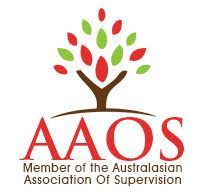What is Professional Supervision?
Professional supervision is an important and expanding field of practice. The provision of high-quality supervision services within both clinical and pastoral contexts is central to the health and wellbeing of those who minister to and support others and to those who are being ministered to.
Professional supervision is a forum for reflection and accountability that maintains a focus on experiential learning. Supervision is a contractual, relational, collaborative and reflective process that facilitates the growth and development of the individual and their ethical and professional practice. Professional supervision holds a dual focus in ensuring optimal outcomes for clients and the professional development and self-care of the supervisee.
Why It Matters
To meet professional association requirements, clinical practitioners such as counsellors and psychotherapists have for many years been required to regularly attend clinical supervision. The Royal Commission’s finding (recommendation 16.45), that “each religious institution should ensure that all people in religious or pastoral ministry, including religious leaders, have professional supervision with a trained professional,” further supports the importance of professional supervision in an expanding range of contexts.
Get Started
Your pathway to accreditation begins with enrolment in the Graduate Certificate of Professional Supervision .
Bible & Theology students who wish to include Professional Supervision training as part of an AUT award, please contact us for a personalised course plan.
Accreditation
These courses are awarded through Morling College Ltd (Provider ID: PRV12034) and accredited under the self-accrediting authority approved by TEQSA. See TEQSA’s listing .
Entry Requirements
Please note: Entry into training as a professional supervisor requires a minimum of 5 years’ experience in your field of expertise (e.g. 5 years experience in pastoral ministry or chaplaincy for training as a Professional Pastoral Supervisor, and 5 years clinical practice experience for training as a Professional Clinical Supervisor).
Course Structure
Semester 1
- CPS801 – Theory & Practice of Professional Supervision
- CPS811 – Professional & Personal Wellbeing in Supervision
Semester 2
- CPS802 – Advanced Theory & Practice of Professional Supervision
- CPS850 – Supervised Practicum



